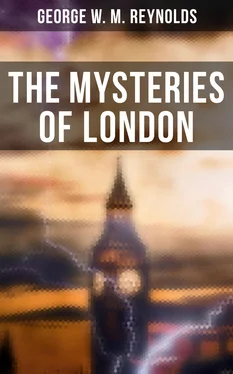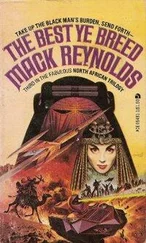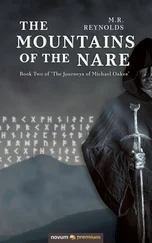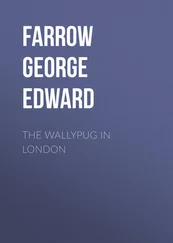"At half-past ten o'clock the President of the Council, the Grand Chancellor, and the Intendant of the Ducal Civil List arrived in their carriages at General Grachia's abode, preceded by one of the royal equipages, which was sent to convey the bride and her ladies-in-waiting to the palace. In a few minutes the President of the Council handed the bride, who was attended by the lady and three lovely daughters of General Grachia, into the ducal carriage. The procession then repaired to the palace, the crowds that lined the streets and occupied the windows and balconies by which it passed, expressing their feelings by cheers and the waving of handkerchiefs. To these demonstrations the bride responded by graceful bows, bestowed in a manner so modest and yet evidently sincere, that the conduct of this exalted lady upon the occasion won all hearts.
"The procession entered the palace-square; and the Grand Duke, attended by the great officers of state and a brilliant staff, received his intended bride at the foot of the great marble staircase of the western pavilion. The illustrious company then entered the palace. Immediately afterwards the five regiments of household troops, commanded by that noble veteran the Marshal Count of Galeazzo, marched into the square, and formed into three lines along the western side of the palace. At half-past eleven the royal party appeared at the foot of the marble staircase, and entered the numerous carriages in waiting. The bride occupied the carriage which had conveyed her to the palace, and was accompanied by the ladies in attendance upon her. His Serene Highness, attended by the President of the Council and the Grand Chancellor, entered the state carriage. The procession then moved onwards to the Cathedral of Saint Theodosia.
"This was the signal for the roar of artillery from all points. The citadel, and the ships of war in the roadstead thundered forth the announcement that his Serene Highness had just left the palace. The bells rang blithely from every steeple; the troops presented arms, the military bands played the national hymn; and the procession was welcomed with joyous shouts, the waving of handkerchiefs, and the smiles of beauty. The windows and balconies of the houses overlooking the streets through which it passed, were crowded with elegantly dressed ladies, brilliant with their own beauty, gay with waving plumes, and sparkling with diamonds. The only indication of political feeling which we observed upon the occasion, was on the part of the troops; and they were silent .
"The bride was naturally the centre of all interest and attraction. Every one was anxious to catch a glimpse of her charming countenance. And certainly this lovely lady never could have appeared more lovely than on the present occasion. She was attired in a dress of the most costly point-lace over white satin. Her veil was of the first-mentioned material, and of the richest description. She was somewhat pale; but a charming serenity was depicted upon her countenance. She bowed frequently, and in the most unpretending and affable manner, as the procession moved along.
"At length the cavalcade reached the cathedral, where the Archbishop of Montoni, assisted by the Bishops of Trevisano and Collato, was in attendance to perform the solemn ceremony. The sacred edifice was thronged by the élite and fashion of the capital, who had been admitted by tickets. When the royal party had entered the Cathedral, the doors were closed; and the holy ceremony was solemnised. The roar of the artillery was again heard, as the royal party returned to their carriages. This time the Grand Duchess was handed by his Serene Highness into the state carriage. The return to the palace was distinguished by demonstrations of satisfaction on the part of the spectators more enthusiastic, if possible, than those which marked the progress of the cavalcade to the cathedral. A glow of animation was visible upon the countenance of her Serene Highness; and the Grand Duke himself looked remarkably well and cheerful. In a short time the Sovereign conducted his lovely bride into that palace which in future is to be her home.
"Thus ended a ceremony which, in a political point of view, may probably be attended with important results to the interests of Castelcicala. Should male issue proceed from this marriage, the contentions of rival parties in the state will be at once annihilated. The supporters of the Prince of Castelcicala, who is now an exile in England, are naturally indignant and annoyed at the marriage of his Serene Highness Angelo III. with a lady young enough to encourage hopes that the union may not remain unfruitful. It is even evident that many of the former friends of the exiled Prince pronounced in favour of this marriage, the moment it was contemplated some months previously to its solemnization. This sentiment of approval will account for the entrance of General Grachia, who was notorious for his adhesion to the popular cause espoused by the Prince, into the Ministry. Probably the best friends of their country, aware that it was neither natural nor legal to attempt to control the inclinations and affections of his Serene Highness Angelo III., looked upon this marriage as the best means of securing peace and internal tranquillity to Castelcicala, inasmuch as it gives a prospect of an heir to the ducal throne—an heir whose right and title none could dispute. This is the view we ourselves take of the case: and we therefore hail the event as one of a most auspicious nature in our annals."
Scarcely had the Enchantress terminated this narrative of the ceremony which elevated her friend to a ducal throne—a narrative which she had perused with the liveliest feelings of satisfaction, and the most unadulterated pleasure—when the Earl of Warrington was announced.
Diana hastened to communicate to him the tidings which she had received; and the nobleman himself read Eliza's letter, and the extract from the Montoni Gazette , with an interest which showed how gratified he felt in the high and exalted fortunes of the daughter of her whom he had once loved so tenderly.
"Yes, indeed," said the earl, when he had terminated the perusal of the two documents, "Eliza Sydney now ranks amongst the queens and reigning princesses of the world: from a humble cottage she has risen to a throne."
"And this exalted station she owes to your lordship's goodness," remarked Diana.
"Say to my justice," observed the earl; "for I may flatter myself that I have behaved with justice to the child of my departed uncle's daughter. And this remarkable exaltation of Eliza Sydney shows us, Diana, that we should never judge of a person's character by one fault. Eliza has always been imbued with sentiments of virtue and integrity, although she was led into one error by that villain Stephens; and she has now met with a reward of a price high almost beyond precedent. But, ah!" exclaimed the earl, who was carelessly turning the letter of the Grand Duchess over and over in his hands as he spoke, "this is very singular—very remarkable;"—and he inspected the seal and post-marks of the letter with minute attention.
"What is the matter?" inquired Diana.
"Some treachery has been perpetrated here," answered the earl, still continuing his scrutiny: "this letter had been opened before it was delivered to you."
"Opened!" cried Diana.
"Yes," said the Earl of Warrington; "here is every proof that the letter has been violated. See—there is the English post-mark of yesterday morning : and over it has been stamped another mark , of this morning's date. Then contemplate the seal. There are two kinds of wax, the one melted over the other: do you not notice a shade different in their colours?"
"Certainly," said Diana: "it is apparent. But who could have done this? Perhaps the Grand Duchess herself; for the ducal arms are imprinted upon the upper layer of wax."
Читать дальше












